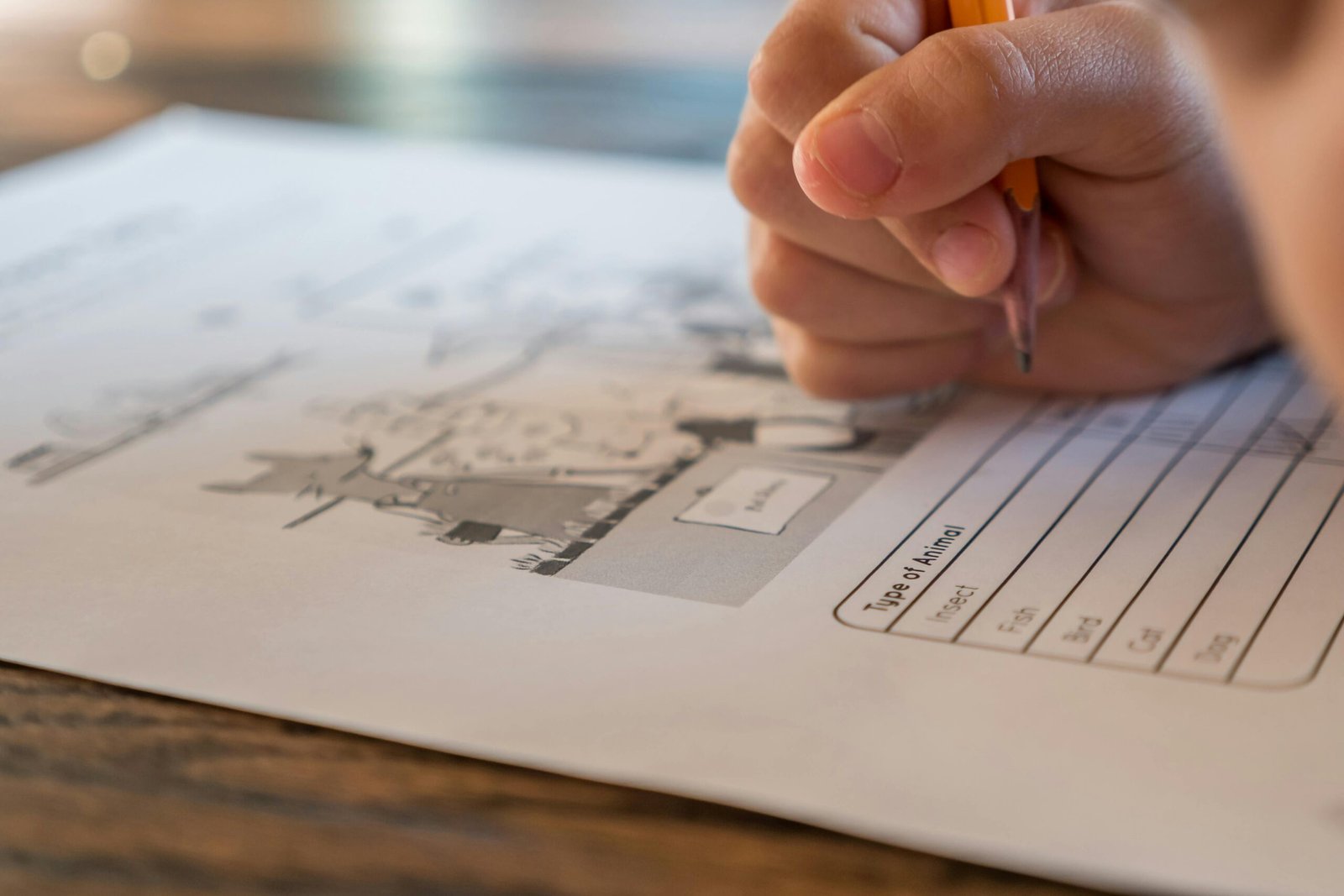10 Proven Strategies To Ace Your exams

For any student, acing exams is one of the most important goals. However, with constant assignments, activities and other distractions, it can seem almost impossible to achieve top grades no matter how hard you try. Struggling with studying is a common issue that affects people at all educational levels. But it doesn’t have to be this way. through establishing the right strategies and habits, you can learn how to study effectively and efficiently. In this comprehensive blog post, we will reveal ten proven techniques backed by research to help you take your academic performance to a new level.
Defining Your Goals and Motivation for Studying
Before diving into specific study methods, it’s important to first get clear on your goals and why they motivate you. Ask yourself – why do you want to achieve high marks? Is it to get accepted into a prestigious university? Land your dream job? Make your parents proud? Keeping your end goals in mind can help you stay focused and push through challenging moments when you feel like giving up. It will also help you prioritize how to spend your study time wisely on subjects and topics that matter most. With a strong understanding of your “why”, you’ll be far more likely to internalize the strategies shared here and make them habits that stick.
The Power of Active Recall
One of the most effective yet underutilized study techniques is active recall. Simply put, this means recalling information from memory rather than re-reading or listening passively. Active recall forces deeper processing and encoding of knowledge into your long-term memory stores. Some ways to incorporate active recall into your routine include:
– Testing yourself with practice questions without looking at notes
– Explaining concepts to a study partner in your own words
– Outlining topics and lessons without re-reading source material
– Teaching or tutoring others – even if just to yourself
Research has shown active recall can boost exam scores significantly more than re-reading. The act of retrieval strengthens memory circuits in the brain each time information is summoned from memory. So be sure to incorporate regular self-testing and recall exercises into your preparation.
Managing Your study Environment
Where you choose to study can seriously impact your productivity and focus. An ideal study space should be:
– Quiet with minimal distractions like TV, social media or phone notifications
– Well-lit with a comfortable temperature
– Ergonomically set up with an adjustable chair and workspace
– Stocked with needed supplies like a laptop, note pads, pens etc.
Some top tips for creating an optimal environment include:
– Designate a single room or area just for studying to train your mind
– Use a “focus lamp” only switched on during study sessions
– Play background noise or music without lyrics if helpful
– Consider rearranging your furniture to feel fresh and inspired
Managing your physical space sets the right context and mindset for maximum absorption and retention of learning material. Maintain high standards for focus in your study zone.
Maximizing Concentration with the Pomodoro Technique
We’ve all suffered through an unproductive “all-nighter” study marathon only to wake up groggy with little to show for it. A smarter approach is breaking up your time into focused intervals using the Pomodoro Technique. Here’s a brief overview:
– Set a timer for 25 minutes to focus solely on the task at hand
– After the timer goes off, take a 5 minute break to refresh
– Do 4 pomodoros, then take a longer 15-30 minute break
– Repeat as needed throughout your study session
This proven method hacks our natural cycles of focus and refreshment for optimal productivity. Short and frequent breaks prevent mental fatigue so you can power through your session feeling re-energized. The pauses also help commit information to long-term memory through retrieval and consolidation during rest periods.
Optimizing Focus with Concentration Games
In addition to scheduled breaks, including light “brain games” during your study can boost attention and memory retention. Some fun and engaging examples include:
– Mind mapping or concept charts to visualize relationships
– Flashcard games or quizzes with a study partner
– Simple memory games like remembering grocery lists
– Interactive apps like Anthropic to challenge your focus
These micro learning challenges maintain alertness and interest. They stimulate areas of the brain involved in attention and keep you engaged with material versus passively reading alone. Incorporate some mindful games a few times per session for an impactful study boost.
The Power of Sleep for Memory Consolidation
We’ve all heard it before – good sleep is important. But its role in learning success takes study habits to a whole new level. During sleep, especially REM sleep, your brain consolidates new information transferred from short-term to long-term memory storage. Research indicates sleep-deprived students performed worse on recall tests compared to well-rested peers.
Some sleep hygiene recommendations to maximize your nightly memory processes:
– Aim for 7-9 hours of sleep per night especially on exam days
– Establish a winding down routine 1-2 hours before bed
– Limit screen time, caffeine and exercise before sleep
– Consider relaxation techniques like meditation, music or baths
– Seek help for conditions like insomnia or sleep apnea if needed
Prioritizing consistent, high quality sleep should be a non-negotiable part of any study routine. Give your brain the rest it needs to optimally retain and integrate all your hard work.
Mastering Concept Learning over Memorization
While memorization plays a role, truly understanding core concepts leads to deeper, more versatile and long-lasting learning. To move beyond surface facts:
– Identify the key themes and models underlying your topics
– Map relationships between ideas using visual tools like concept maps
– Teach concepts to yourself or others using analogies and examples
– Practice applying concepts to real world scenarios or case studies
– Consider potential exam questions testing higher order thinking
Focus your efforts on comprehending why rather than simply what. Conceptual knowledge allows for flexible problem-solving and truly owns the material rather than memorizing isolated details. Invest time shifting your focus from memorization alone to embracing conceptual mastery.
Creating Effective Study Guides
Organizing course content into well-structured study guides streamlines your review and maximizes retention. Some best practices include:
– Format information visually with headings, lists, color coding
– Summarize and synthesize rather than directly copying notes
– Incorporate practice questions testing your understanding
– Refer back to learning objectives and expected outcomes
– Use mnemonic devices or other memory aids where applicable
– Review guides in their entirety regularly versus piecemeal
Craft customized guides relevant to your professors’ priorities. Update them throughout the term as your understanding grows deeper. Well-designed study materials become your most powerful learning tool leading up to exams.
Teaching Others Boosts Your Own Learning
Many report learning material best when teaching others. By sharing what you’ve learned, you:
– Discover gaps or weaknesses in your own comprehension
– Practice expressing concepts in your own words for better mastery
– Receive helpful feedback from your audience’s questions
– Build confidence in your abilities to communicate knowledge
Look for opportunities like tutoring, joining study groups or creating youtube videos. Even just explaining concepts to family, friends or recording yourself can yield great benefits. Teaching is one of the ultimate forms of active recall cementing information retention.
Incorporating Reward Systems
As with any major goal, celebration and reward keep you motivated throughout the journey. After deep work sessions or accomplishing certain study to-dos, provide small treats like:
– Your favorite healthy snack or coffee drink
– 30 minutes for a fun hobby or relaxing activities
– Checking off tasks on your vision board or planner
– Treating yourself post-finals to new clothes or activities
Positive reinforcement strengthens desired behaviors over time. So be sure to acknowledge both effort and outcomes alongside your diligent preparation. Balancing hard work with fun maintains your mental wellness and passion for learning.
Mastering the art of studying effectively does require time and practice to develop. But with commitment to successful strategies backed by science, you have the power to take complete control of your academic results. Focus on optimizing techniques like active recall, conceptual learning, Pomodoros, sleep and creating customized study materials tailored to your unique needs and learning style. Stay consistent – and remember that progress, not perfection, should be the goal. With daily refinement, you’ll soon ace every exam with less hassle and more confidence in your abilities.





